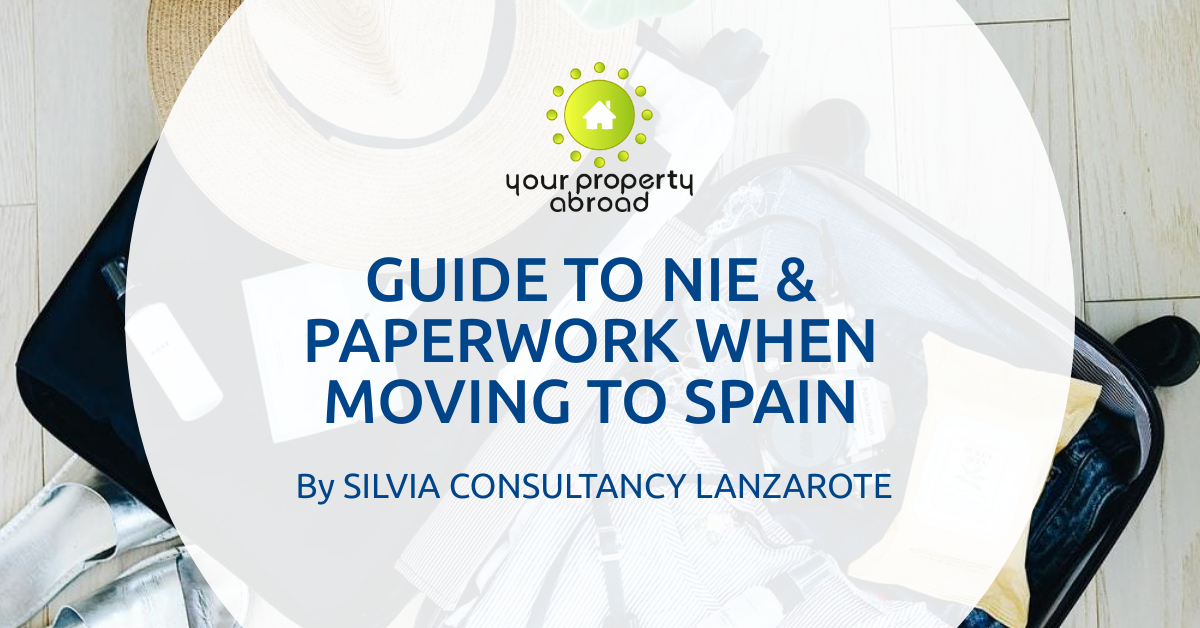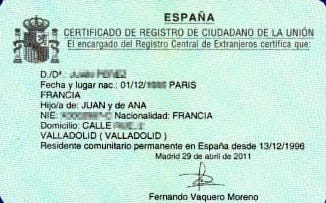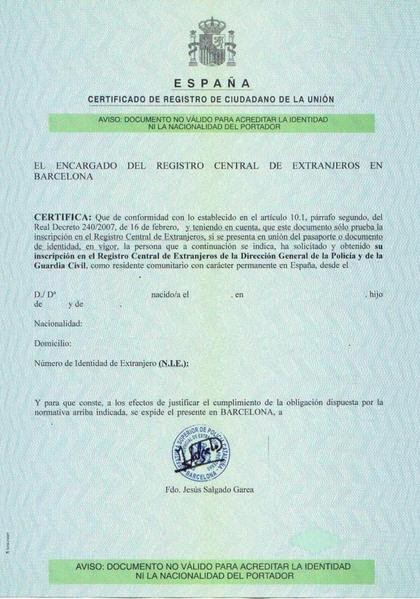
Applying for NIE, Residencia & More when Moving to Spain

When you are looking to buy a property in Spain as a holiday home or as your forever home the paperwork and bureaucracy can seem daunting! As a Bilingual Consultant based in Lanzarote, I have put together this simple guide to help you navigate the documents you need to get you started for your new home or life in Spain.
Getting Your NIE Number
The first thing you need to do is acquire your Número de Identificación de Extranjero, i.e. Foreigners Identification Number. This is usually referred to as your NIE and is a white certificate bearing a number.
This Número de Identificación de Extranjero is an identification number in Spain for everyone who is not a Spanish citizen and is is the counterpart to a DNI for Spanish citizens. It doesn’t matter if you are an EU citizen or non-EU citizen, both are issued a NIE. The NIE is not a fiscal residency identification; you can have a NIE and be fiscal resident in another country.
So, who needs an NIE in Spain?
- Any foreigner who becomes resident for tax purposes in Spain.
- Any non-resident foreigner who buys property in Spain. If a couple buys a property in Spain together, and they register the property in both their names, then both of them must obtain an NIE number.
- Anyone who wants to work in Spain, or start a business in Spain.
The number itself is made up of an initial letter followed by seven digits followed by a verification letter. The initial letter is an X for people who registered before July 2008 and a Y afterwards.
The NIE is your all-purpose identification and tax number in Spain. You need it for everything that involves a trámite or official process in Spain. For example, you will need an NIE number to buy a property, buy a car, get connected to the utilities and, most importantly as far as the Spanish state is concerned, pay your taxes.
An NIE is only issued by the National Police of Spain and can be applied for in the following three ways:
The NIE is your all-purpose identification and tax number in Spain. You need it for everything that involves a trámite or official process in Spain. For example, you will need an NIE number to buy a property, buy a car, get connected to the utilities and, most importantly as far as the Spanish state is concerned, pay your taxes.
An NIE is only issued by the National Police of Spain and can be applied for in the following three ways:
Registering at the Ayuntamiento (City Hall) in Spain
This is a certificate provided by a local Ayuntamiento when someone living in that municipality signs onto the local register of residents – this is known as the “Padrón”. This is similar to the UK’s electoral register, compiled council by council, but unlike the UK does not convey a right to vote: for that, local residents also have to ask the council to put their name on the “census” as well as the padrón (note that we can only vote in local elections here).
Who should register on the padrón?
- If you are resident in Spain for more than three months, it is a requirement that you must register yourself on the Padrón.
- If you own a property you should also register in order to pay local taxes
How to register on the padrón:
Registering for the Padrón is a simple process which you complete at the local town hall by filling in the form they provide. You will need to provide a copy of your NIE and Passport too.
You do not need to own a property – you can register on the Padrón if you are renting or live with others, however, you will need a rental contract or, if you are staying with friends or family, the homeowner or person named on the rental contract will need to sign the form.
Please note: As many bureaucratic processes in Spain require you to present a Certificado de Empadronamiento it’s vital to register as soon as possible.
The Certificado de Registro, or “Residencia” as you probably know it!

Without a Residencia, you are not legally entitled to stay in Spain for more than 90 days. It is the document certifying the registration in the Central Register of Foreigners of citizens of a Member State of the European Union or of another State party to the Agreement on the European Economic Area who will reside in Spain for a period of more than three months.
This is a document printed on green paper (used to be A4 size but is now credit-card sized) You may hear it referred to by a range of names, including – green certificate, green card, green NIE, residencia. Its correct name is Certificado de Registro and is provided by the police to residents who comply with the legal requirement of registering with the police as a foreigner living in Spain.
PLEASE NOTE THE CERTIFICADO DE REGISTRO IS THE ONLY THING THAT PROVES LEGAL RESIDENCE.
You must apply within the 3 months after arrival and it is worth noting that applying for Residencia does not lose you any of your rights as a citizen of the country where you hold a Passport for.

How to Register with the Central Register:
Here in Lanzarote, the place to register is at the Delegación de Gobierno – Unidad de Extranjería office in Arrecife. In other areas, you may find this is usually done at the local national police station (“policia nacional”)
Documents to bring when registering in the Spanish Central Register:
General documents you need to bring:
- Passport or other identity documents (not expired)
- Official form (EX-18), two copies, filled and signed by the UE national.
- Salaried workers – your contract of employment or other proof of your employment status. In addition, you will have to attach other documents, depending on your situation:
- Self-employed workers – proof of registration in the register of economic activities (censo de actividades económicas) or other proof of your employment status.
If you are not in employment in Spain you will need proof of the following:
- Health cover valid in Spain and
- Sufficient means to support yourself and your family.
- Pensioners – provide proof of public health cover.
Students need to have:
- Proof of your registration in an educational establishment,
- Proof of public or private health cover and
- A formal declaration that you have sufficient means to support yourself during your stay.

Older residence certificates are larger (A4 size) but are still valid. You do not need to apply for a credit-card-sized certificate unless your circumstances change (for example your address) or unless you want to.
After you have been registered as a resident for five years, you can apply for a certificate of permanent residence in Spain. You will be issued with a similar credit card size Residence Certificate, but it will additionally state that you are a permanent resident (residente permanente).
Get help with Spanish Paperwork & Translations in Lanzarote
I hope that you find this information helpful. If you are looking to move to Lanzarote and need help with any part of your move you can find out more about my services on my website. I have an extensive range of contacts right across the island and can assist in many areas!
You can also find me on Facebook @Silvialanzaroteconsultancy
Visit Silvia Garcia Hurtado’s website here.
This article was written by Silvia García Hurtado, bilingual consultant in Lanzarote. Contact her through her website or Facebook page if you need any help with paperwork, translations, or otherwise need local knowledge and support.
